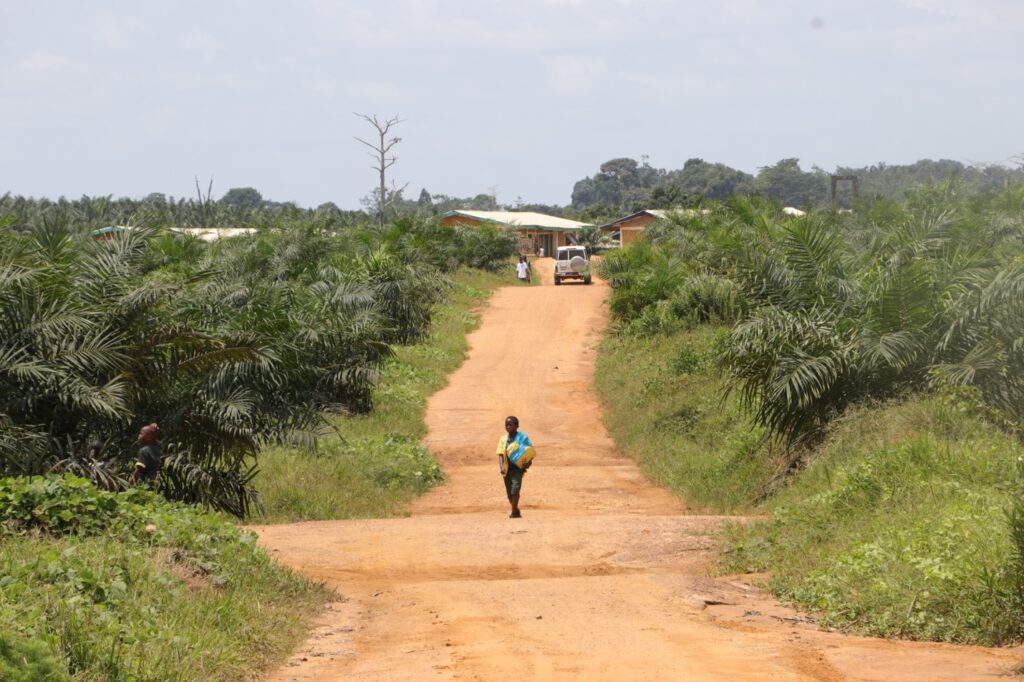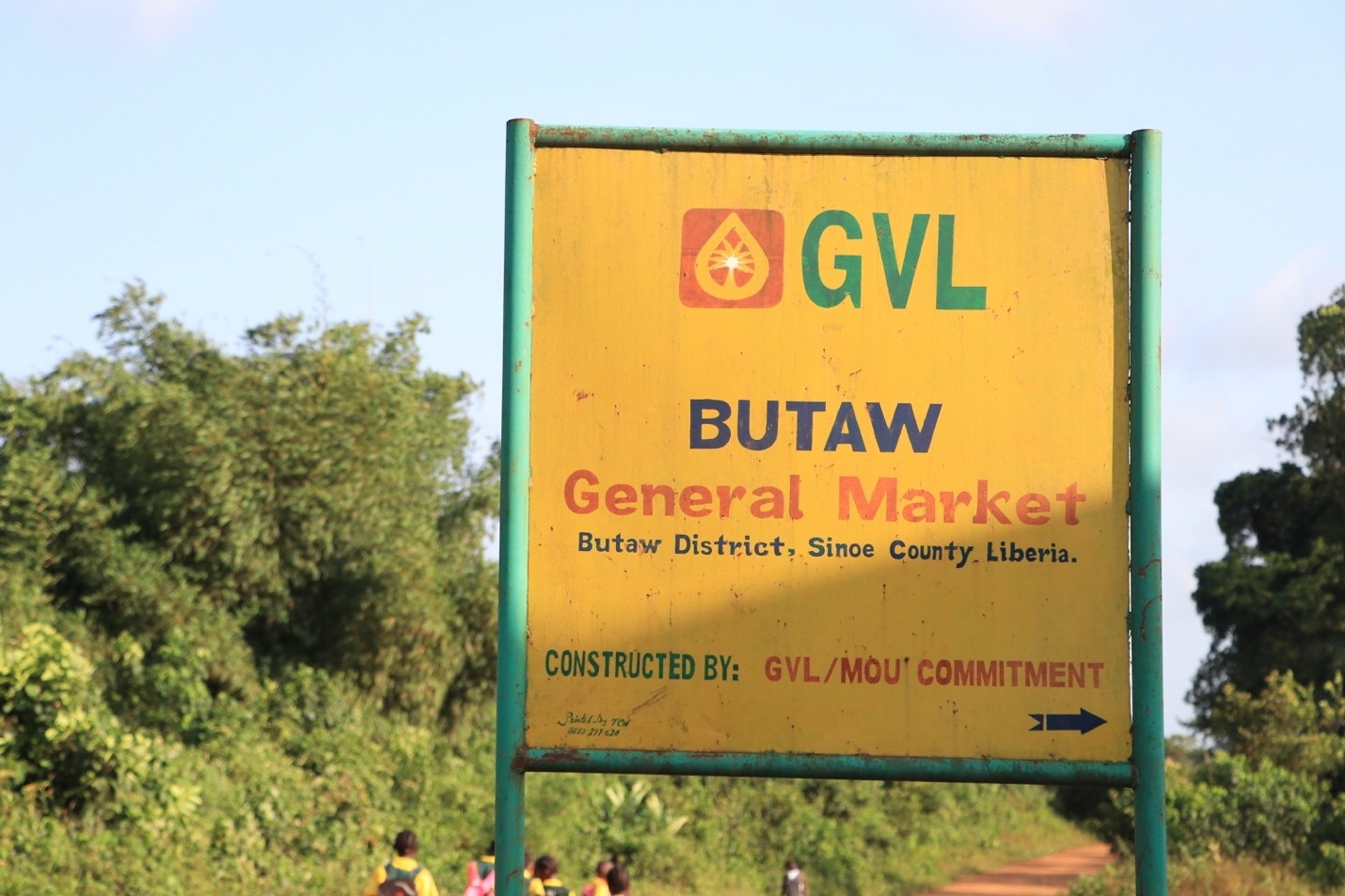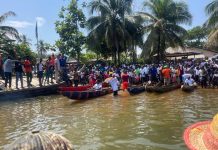Banner Image: A Golden Veroleum Liberia signboard in Butaw, Sinoe County. The DayLight/Harry Browne
By Varney Kamara
MONROVIA – One of the three reasons Golden Veroelum Liberia (GVL) gave to lay off 440 people last year was illegal, an investigation by The DayLight has uncovered.
GVL said the layoffs were due to high cost of road repairs in addition to the impacts of coronavirus pandemic and the slump in the palm oil prices on the world market. It said it had to take the action.
But this is violation. GVL’s concession agreement with the Liberian Government mandates the company “to construct, install, maintain, and or repair, at its own expense, infrastructure within the concession area, and additional areas.”
The agreement also added that “The investor (GVL) shall only be responsible for ongoing maintenance or repair of any such infrastructure in the developed areas and to the extent specified in the approval of [the] government.”
The company’s action came as Liberia battled its first wave of the pandemic. At the time of the layoffs, the country recorded 626 cases and 34 deaths, according to the National Public Health Institute of Liberia (NPHIL). They also came at a time when the prices of palm oil fell to US$103.87 a ton or 16.34 percent on the world market, according to trading on a contract for difference (CFD) that tracks the benchmark market for the global commodity.
Majority of employees affected by the redundancies were fieldworkers who received between $115 and $130 as monthly wages. They came from Tartweh, Tarjuowon, Butaw, Kabada, and Wadabo, in Liberia’s southeastern Sinoe and Grand Kru counties.
Both GVL and the Ministry of Public works—the government agency responsible for infrastructure—eluded several attempts for an interview. This reporter sent emailed queries on the matter, and made follow up phone calls and text messages to the company and the ministry but got no reply.
However, GVL, said earlier this year it had spent up to US$2.4 million on road repairs during the coronavirus pandemic last year. “Our production has also dropped from twice a month to just once monthly,” GVL Vice for Strategy and Stakeholders’ affairs Elvis Morris, told FrontPage Africa at the time.

Laying off workers over road maintenance also violates a 2019 memorandum of understanding it signed with the Liberian government. GVL agreed in that MoU to rehabilitate a 277 kilometer lateral road connecting Pleebo in Maryland and Tarjuowon in Sinoe.
The layoffs increased poverty in many households in the two affected counites. Of the total number of workers that were laid off, 80 came from Butaw, 125 in Tarjuowon, 81 in Kpanyan, 54 in Wedabo, 34 in Garaway, 24 in Soroken, 16 in Kabada and 28 in Tartweh.
Between 2015 and 2017, GVL also breached MoUs it signed with communities, locals on whose land the company expanded its plantation. It has failed to provide jobs and development as it promised in those documents. That violation was captured in an April 2017 report by the Roundtable on Sustainable Palm Oil (RSPO), the global watchdog for the oil palm sector. GVL’s concession mandates it to follow the RSPO’s principles, the only oil palm concession in Liberia that has that clause. It is a member of the certification scheme through its parent company Golden Agri Resources (GAR), the world’s second-largest palm oil company. The RSPO later reprimanded the company for land-grab a year after the report and ordered it to negotiate with the communities on employment opportunities and other issues. GVL would pull out of the RSPO only to reenter shortly after.
GVL, Liberia’s biggest oil palm company, signed a 65-year concession agreement with the Liberian government in 2010, leasing 220,000 hectares of land in Grand Kru, Maryland, River Cess, River Gee and Sinoe, the largest palm oil concession in the country. But people living in these areas had no say in the concession agreement. In 2015, a riot between residents of Butaw and armed police left at least one dead, scores of people injured and over US$700,000 properties destroyed.
This story is a part of The DayLight’s Human Rights Reporting Series.




